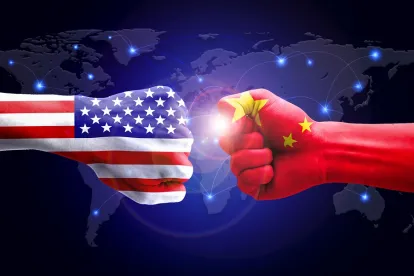The U.S. Department of Commerce is considering tightening export controls in two major ways. The changes are aimed at choking off supplies to Huawei, but the move could impact a wide range of commercial transactions for all EAR items and technology exported or reexported to China.
The Opening Gambit: The Huawei Designation
As you might remember, on May 16, 2019, the Commerce Department designated Huawei and dozens of its affiliate companies to the U.S. Entity List. That designation prohibited any person from exporting, reexporting or transferring any item subject to the EAR to Huawei or its listed affiliate companies. That designation cut off Huawei from nearly all U.S.-origin commodities, technology, and software, except for those covered by a narrowly drawn temporary general license.
Slipping Through the Line: De Minimis and Direct Product
Notwithstanding the designation, certain items made outside the United States that incorporated U.S.-origin components, technology, or software are still lawfully exported, reexported, or transferred to Huawei.
De minimis
As we reported here, non-U.S. manufacturers could export items they made to Huawei as long as they did not contain more than the de minimis amount of U.S. origin content. That is, if a foreign-made product incorporates less than 25% U.S.-origin content, it is not subject to the EAR and may be exported by the foreign manufacturer to Huawei.
Direct Product Rule
When products are manufactured overseas, but are based on certain U.S. technology, the products may be considered a “direct product” of U.S. technology, and, therefore, subject to the EAR. However, those products will only be considered direct products if the underlying U.S.-origin technology is controlled for National Security reasons and it requires a written assurance as supporting documentation for an export license.
Under the rules above, U.S. companies and non-U.S. manufacturers are able to lawfully produce items with less than de minimis content, or direct products of U.S. technology not controlled as described in the direct product rule, and reexport those products to Huawei.
The Commerce Department may now change those rules.
Changing the Rules: Bending the EAR
Foreign-Made Products With Any U.S.-Origin Content
We understand from public comments[1] that the Commerce Department is considering reducing or eliminating the level of de minimis U.S.-origin content that would make a foreign-made product subject to the Export Administration Regulations (EAR) for exports to China. In general, under the current controls, if a foreign-made item contains 25% of less U.S.-origin content, that item is not subject to the EAR. The Commerce Department is weighing reducing that level to 10% or even to practically zero. In that case, any level of U.S.-origin content could render a foreign-made item subject to the EAR when exported to China. It would also be possible for the Commerce Department to lower the de minimis level for exports to Entity List designee, though it is unclear whether that option is currently under consideration.
Foreign-Made Products Made From U.S. Technology
The Department of Commerce may also expand the Direct Product Rule for exports to China. Under the expansion, the foreign direct product of any U.S. technology, as opposed to only certain controlled U.S. technology, would be considered subject to the EAR.
Staying in the Game
The potential changes have the capacity to prohibit foreign and U.S. manufacturers from making many currently-lawful sales to Huawei. Trade groups are asking the Commerce Department to consider stakeholder input before proceeding. However, the Commerce Department has taken a consistently aggressive line on Huawei and there is no indication that approach has changed. If your business is in play in this shifting environment, your best strategy is to keep an eye on the rules and prepare for the changes.
We will of course report with any further updates here.
[1] Rich Ashooh, the Department of Commerce’s Assistant Secretary for Export Administration, shared the proposed changes in the public portion of a Regulations and Procedures Technical Advisory Committee meeting.




 />i
/>i

